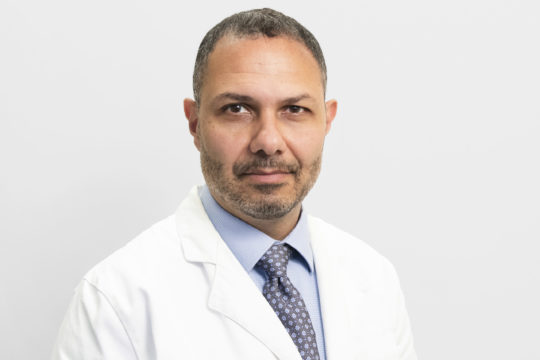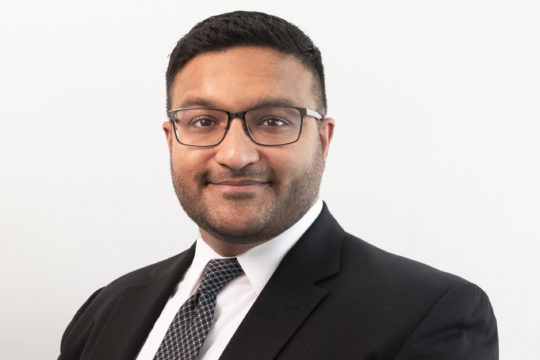Movement Disorders Treatment Gives Patient a New Lease on Life
Essential Tremors Treatment is Short of a Miracle
Tom Cioffi stops short of calling the results of his focused ultrasound treatment a miracle. A few years ago, tremors had presented suddenly, with disruptive and debilitating consequences. He could not lift a spoon of traditional clam chowder to his mouth or a morning cup of coffee. He expected the symptoms would only worsen. Now, he’s got his life back.
“I don’t want to call it a miracle,” he says tearfully, looking for support from his wife who sits to his side. A professional golfer for 35 years, Tom chokes back emotions as he describes the life-altering surgery at Rhode Island Hospital that halted the essential tremor on his right side, and to his head. “It’s a testament to the decades of work and countless hours that the doctors and technicians put in to be able to fix someone like me. I’m very excited and appreciative of what’s happened.”
Unknown cause
Tremor is an involuntary – usually rhythmic – movement that results in the shaking of a body part. Known as essential tremor (ET), its cause is unknown. When the tremor does not respond well to medications, or severe symptoms impair an individual’s quality of life, then surgical treatment can be considered. The two main surgical treatments are deep brain stimulation (DBS) and the one that Tom and his care team chose – focused ultrasound (FUS).
Non-invasive treatment
FUS is a neurosurgical technology that involves treating the deep brain in a single outpatient procedure without the need for a surgical incision. Specifically, the technology uses ultrasound waves to create a small ablation to disrupt pathological brain activity to reduce the signs or symptoms of Essential Tremor and Tremor-dominant Parkinson’s Disease.
“Fast Track” to help
When a caring friend mentioned the innovative FUS treatment being used successfully by doctors at the Movements Disorders Clinic at Rhode Island, Tom was literally on the fast track to help.
At the Fast Track Deep Brain Stimulation Clinic at Rhode Island Hospital, Tom and his wife, Sally, met with an experienced multidisciplinary team that included neurosurgeons Dr. Wael Asaad and Athar Naveed Malik. “The team was informative, professional, well ahead of the curve of anything I was anticipating,” Tom recalled. “I felt very comfortable going in and during the process.”
For others who may experience essential tremor, Tom encourages them to consider the treatment that changed his world. “Don’t wait. The tremors get worse. This treatment works.”
In the video above, Tom Cioffi tells his story and the happy results he gained from focused ultrasound treatment. In addition, Wael Asaad, MD, PhD and Athar Malik, MD, PhD from the Brown University Department of Neurosurgery and Normal Prince Neurosciences Institute at Rhode Island Hospital, were part of the patient’s team and describe the process.
Featured

